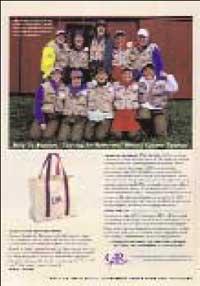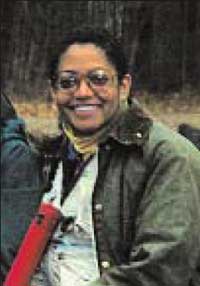Vital Signs:
Recovery concept is catching on with breast cancer patients nationwide
Eight years ago, Dr. Benita Walton was concerned about her patients. Now a resident in psychiatry at DHMC, Walton was then a reconstructive surgeon who worked primarily with breast cancer patients. Part of her concern was for their physical well-being. After mastectomy and reconstruction, physical therapy is required to restore mobility and to prevent a buildup of fluid as a result of lymph node removal. More importantly, Walton was worried about her patients' emotional well-being. "The spouses, families, and friends of these women," she explains, "were frequently incapable of providing the emotional support necessary to help them pass through a very trying period of their lives."
She initially prescribed exercises to keep her patients active. Then, as a fly-fishing enthusiast, she realized that the overhand motion of casting would be excellent physical therapy and also that placing the women in a stress-free natural environment with other breast-cancer survivors would aid their emotional recovery. She'd done her plastic surgery residency at DHMC years earlier, so she turned to two Dartmouth colleagues- Dr. James Murphy, an orthopaedist, and Dr. Lisa Miller, an oncologist-to help her launch the idea. A subsequent contact with Gwen Perkins, a member of the Orvis sporting goods family, led to an offer of fishing gear as well as partial funding for the project.


|
| At left is an ad for "Casting for Recovery" in an Orvis catalog, and at right is the program's founder, Dartmouth's Benita Walton. |
Now a national organization called "Casting for Recovery," the program conceived at Dartmouth has more than 1,200 alumnae and will hold 30 retreats in 22 states in 2004, up from four in 1998. Sessions are booked up through 2006. The three-day retreats, typically organized by local groups in partnership with hospitals, are limited to 14 participants and include both medical counseling and fishing instruction in a relaxed atmosphere.
The Orvis connection has led to national media coverage, including a recent feature in the Washington Post. But for Walton, it has also meant letting go of her creation. Nevertheless, she's pleased with the impact the group has had. "The feedback that we receive from the women who attend these events is very positive," she says. And she's proud that the retreats serve women from all socioeconomic backgrounds.
The organization has even affected her own career. "My experiences with Casting for Recovery were the sort of thing that pushed me into psychiatry," she explains of her decision to change specialties. "I like to think that I didn't leave plastic surgery but simply broadened my career."
ERRATUM: A few facts in the story above bear correction or clarification. The name of one of Walton's early Dartmouth supporters was misstated--it was oncologist Letha Mills, M.D., who helped Walton get the program off the ground. And Walton's residency at DHMC was in general surgery, not plastic surgery; she did her plastic surgery training in Madison, Wisc., and Glasgow, Scotland. Finally, Gwen Perkins-whose role in gaining support for the program from the Orvis sporting goods company was noted in the article-"must be considered a cofounder of the program," says Walton. We strive hard for accuracy (dare we say "reel" hard?), and apologize for the errors.
If you would like to offer any feedback about this article, we would welcome getting your comments at DartMed@Dartmouth.edu.
